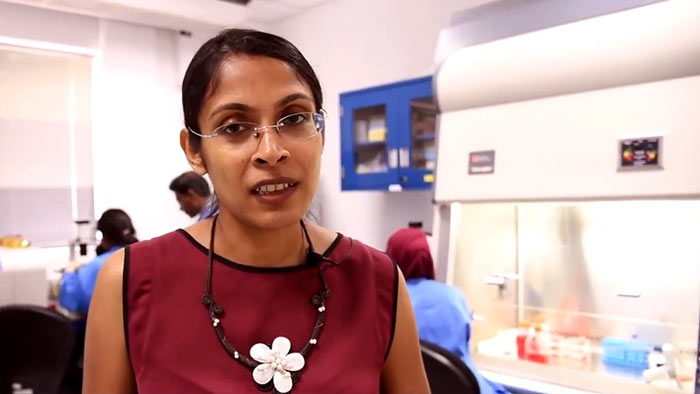COVID is Here to Stay – Professor Malavige

“We can’t eradicate COVID, it is here to stay,” said Professor Neelika Malavige, Head of the Department of Immunology and Molecular Sciences of the Sri Jayewardenepura University. Speaking on the reinfection rates, Prof. Malavige noted that research has indicated the reinfection rates of COVID-19 overall, are rather low.
As per studies conducted in the United Kingdom (a majority of which were conducted on healthcare workers due to their constant exposure to the virus), a mere 4 percent of healthcare workers were re-infected.
They were, however, either asymptomatic or only mildly ill. Further, they were re-infected with the same variant as their initial attack (the previous COVID-19 variant). With the COVID-19 Delta variant currently being the dominant variant, the Professor stated that the severity of possible reinfection may vary with the gap of time between the initial attack and the subsequent attack. Speaking on naturally built immunity, Prof. Malavige noted that despite building natural immunity, there are chances of persons getting re-infected after a while.
They are, however, very likely to be asymptomatic or display only mild illness. Vaccinated persons who have also contracted the virus, however, have stronger immunity levels and are less likely to get re-infected. Speaking with regard to recent concerns over Sri Lanka’s frontline healthcare workers getting re-infected, the Professor admitted that although this is true, a majority of them have displayed only mild illness, or are completely asymptomatic. Recently, it was decided that booster shots of COVID-19 vaccines will be administered to Sri Lanka’s frontline healthcare workers.
In this regard, Prof. Malavgie noted that although booster shots strengthen antibody development and overall immune response, there is no data that indicates that it would prevent the contraction of COVID-19 or reinfection of the virus.
Responding to concerns over the efficacy of different vaccines against COVID-19 and its variants, Prof. Malavige noted that while initial studies about mixing and matching the AstraZeneca vaccine with either the Pfizer or Moderna vaccines have shown stronger antibody response, clinical trials into its efficacy are still underway.
She explained that while a second dose of the same vaccine will merely boost the initial jab, two doses of different vaccines result in higher antibody development, thus creating stronger immunity systems. She noted, however, that having a higher rate of antibodies is different from the efficacy rate of the vaccine cocktail. Concerns have been raised as to whether the administration of yearly shots against COVID19 would be required in the future.
(Source: Ceylon Today – By Rebecca Pavey)

Latest Headlines in Sri Lanka
- Popular rapper Shan Putha arrested with firearm March 14, 2025
- Batalanda commission report tabled in Sri Lankan Parliament March 14, 2025
- Female Grama Niladharis withdraw from night duty over security concerns March 14, 2025
- Sri Lanka ranked as the best country for settling down March 14, 2025
- UN pledges support for Sri Lanka’s industrial and SME development March 13, 2025


